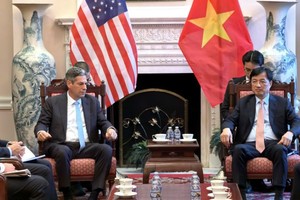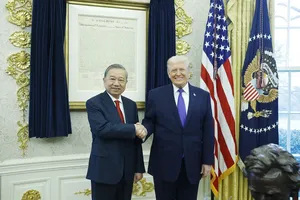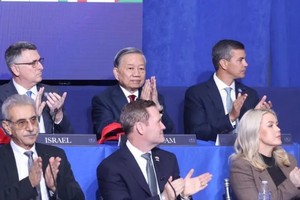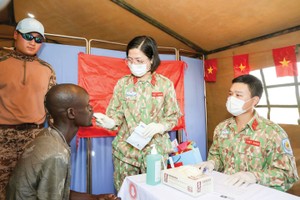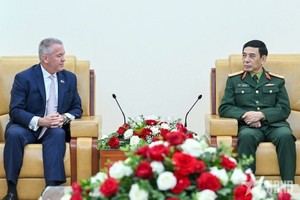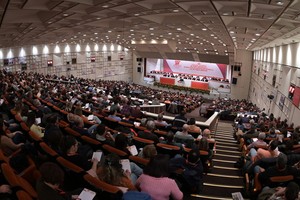The Pakistani Taliban is claiming responsibility for twin blasts at a Frontier Corps training center that killed at least 69 people, nearly all of them recruits. It says the attack is to avenge the killing of Osama bin Laden.
Friday's attack is the bloodiest in Pakistan since the U.S. raid that killed the al-Qaida chief on May 2.
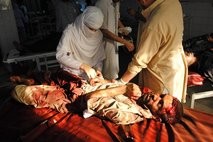
Ahsanullah Ahsan, a spokesman for the Pakistani Taliban, told The Associated Press in a phone call that its fighters conducted the attack on the Frontier Constabulary in Shabqadar in northwest Pakistan in retaliation for bin Laden's death.
The attack was a savage reminder of the toll militant groups are taking on Pakistan even as it faces international suspicion that elements within its security forces may have been harboring bin Laden.
Twin explosions struck a paramilitary training center in northwestern Pakistan on Friday, killing at least 68 people — nearly all recruits — in the bloodiest attack in the country since a U.S. raid killed al-Qaida chief Osama bin Laden.
A suicide bomber detonated at least one of the blasts at the main gate of the facility for the Frontier Constabulary, a poorly equipped but front-line force in Pakistan's battle against al-Qaida and allied Islamist groups close to the Afghan border. Like other branches of Pakistan security forces, it has received U.S. funding.
The scene of the blast was littered with shards of glass mixed with blood and human flesh. The explosions destroyed at least 10 vans the recruits were boarding to go home for a short break at the end of a recent training session.
Dr. Abdul Hameed Afridi of Lady Rieding Hospital in Peshawar said 117 people have been treated at the hospital, including 40 with critical wounds.
About 3 to 4 pounds (6 to 8 kilograms) of explosives were used in one explosion, said police officer Jahanzeb Khan. Ball bearings and nails were used in another, heightening the death toll, he said.
A vegetable vendor at the site said some recruits were seated in white minivans and others were loading luggage atop the vehicles.
"There was a big blast," he said. "I saw smoke, blood and body pieces all around."
The attack was a savage reminder of the toll militant groups are taking on Pakistan even as it faces international suspicion that elements within its security forces may have been harboring bin Laden, who was killed in a raid about three hours' drive from Peshawar.
Police official Nisar Khan said a suicide bomber, a man in his late teens or early 20s, set off one blast. The cause of the other explosion was not yet known, he said.
"The first blast occurred in the middle of the road, and after that there was a huge blast that was more powerful than the first," said Abdul Wahid, a 25-year-old recruit whose legs were wounded in the blasts.
He said he was knocked to the ground by the force of the explosions.
"After falling, I just started crawling and dragging myself to a safer place ... along the wall of a roadside shop," he said.
No group immediately claimed responsibility. But militants have pledged to avenge bin Laden's May 2 killing, and reprisal strikes on Pakistani territory had been expected.
The Sept. 11 mastermind and at least four others were killed by U.S. Navy SEALs who raided bin Laden's compound in Abbottabad, Pakistan, a garrison city. Bin Laden is believed to have lived in the large house for up to six years.
Pakistani officials have denied knowing he was there but have criticized the American raid ordered by President Barack Obama as a violation of their country's sovereignty.
Pakistani leaders have also repeatedly pointed out that tens of thousands of their own citizens have died in suicide and other attacks since Sept. 11, 2001, when Islamabad became an ally of the U.S. in taking on Islamist extremists.
Many of the attacks in Pakistan have targeted security forces, including young cadets or recruits.
